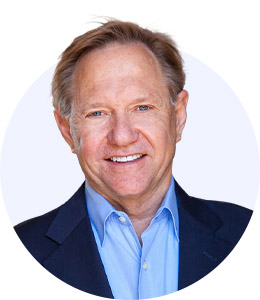I have a book titled Daily Reflections that I read every morning. A recent reflection was titled “A Full and Thankful Heart.” The author stated, “I try hard to hold fast to the truth that a full and thankful heart cannot contain great conceits. When brimming with gratitude, one’s heartbeat must surely result in outgoing love, the finest emotion that we can ever know.”
That author went on to share that most of us are very fortunate. We have much to be grateful for. Yet some of us need to be constantly reminded of the need for gratitude and how important it is. I am one of the “must be constantly reminded” people. I wish being grateful was a natural state for me, but it is not. I am in awe of people who just seem so positive all the time.
Last year the Pensacola Blue Wahoos minor league baseball team lost a great fan. Her name was Ro. She went to the same high school I attended—Lyons Township in La Grange, Illinois—and from the start, she was always upbeat. Ro attended all the Blue Wahoos games for many years. In recent years, she helped in the press box. In 2022, I heard she was dying of cancer. When I talked with Ro, I was taken aback by her attitude. She shared how fortunate she felt to have lived the life she had. She said that she was not afraid and was ready to move on. She even had her memorial service written out. It was held at Blue Wahoos Stadium.
I was talking with my good friend Michael on the topic of gratitude. We discussed that, for some, it seems to come easier than others. Michael shared with me about a time he was feeling sorry for himself and happened to run into Norm Adams, who was one of the most upbeat people I have had the great privilege of knowing. Michael shared that just seeing Norm made him feel better. Norm has since passed, and I keep a photo of him on my desk, both at home and at work.
Throughout my life, I have found that when we deliberately come from a place of gratitude, even if our circumstances don’t change, the way we perceive them does. When we replace negative, stressful thoughts with positive ones about the things we’re grateful for, we dramatically change how we experience life. Grateful people are happy people.
Gratitude impacts our relationships, both at work and at home. Employees thrive on being truly appreciated. When they know we are grateful for their efforts, they are more engaged and motivated. Plus, this mindset is contagious. When leaders set the example, gratitude and positivity spread across the organization like the ripples a stone makes when you toss it into a pond. This creates a culture that attracts and retains the right people.
In my book The Calling, the first page has a quote by me, “A heart full of gratitude has little room for anything else.” Reading this, some may have the perception that this gratitude thing comes easy to me. Based on my life, it should. But, as mentioned earlier, it does not. My DNA seems to contain a gene that has me immediately going to the worst-case scenario!
A gift I have is the self-awareness to know I tend to go to the negative first. In fact, I have put tools in place to move my brain from negative to positive, from self-pity to gratitude. Below are some tips that work, both personally and professionally.
- Create a gratitude tribe. Including me, there are four men in my gratitude tribe. The other three are Chuck, Vince, and Howard. The goal is for each one of us to send a daily text titled “I am grateful for…” and to list three things from the previous day. We have been doing this for the past five years. As we read each other’s texts, it triggers items in our own minds. These come early in the morning and make a difference. I can read these texts from the beginning and see the difference they’ve made.
We started with three people and added the fourth about a year ago. Howard shared after he joined the group: “I had heard of creating gratitude lists but did not see how they could be so impactful.” We can reject something before we try it. (I know I have done this.) Today, Howard shares often the positive impact the daily lists have.
- Pause and take a breath. David is another friend of mine. Each time he sees me, he gives me a look, puts his hands together, then slowly brings them down as he breathes out. I then do the same. His gentle reminder that the way we breathe can impact us is helpful.
- Start conversations with gratitude.It works at home and is also incredibly powerful in the workplace. For example, start each meeting with every person sharing one thing they are grateful for that day. This will lead to a more productive and collaborative meeting and will help reconnect people to the sense of purpose and “calling” that’s so important for keeping them engaged and thriving.
- End each day with gratitude.Take time to think about what you are grateful for from the day you’ve just had. When one goes to bed, it is natural to already be thinking about the next day. Taking the time to reflect on what we are grateful for will help us feel better. It often can lead to better sleep as well.
I know many of you also have lots of ways you keep gratitude in your life. Please send what works for you my way. I will be grateful. Thank you.

